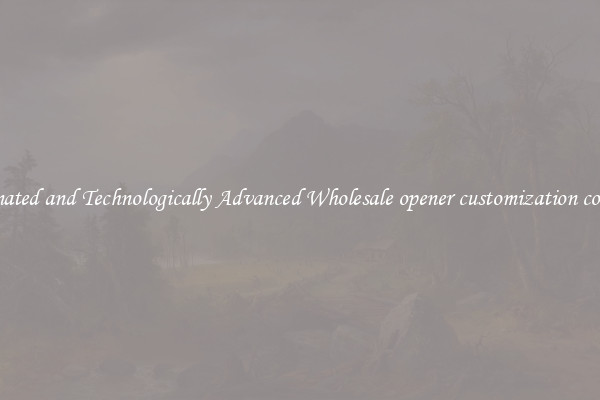Automated and Technologically Advanced Wholesale retail open
Automated and Technologically Advanced Wholesale Retail: Revolutionizing the Industry

The wholesale retail industry has embraced automation and technology to streamline operations, improve efficiency, and enhance the overall customer experience. From inventory management to supply chain optimization, these advancements have revolutionized the way businesses operate in this sector.
One of the most significant advancements is the introduction of automated systems that can handle various tasks, such as order fulfillment and inventory tracking. These systems utilize cutting-edge technology such as artificial intelligence (AI) and machine learning to analyze patterns, predict demand, and make accurate inventory forecasts. This enables businesses to optimize their inventory levels, reduce overhead costs, and avoid stockouts or overstock situations.
Additionally, automated systems facilitate efficient order processing. Through the use of advanced algorithms, these systems can prioritize and route orders to the appropriate warehouses or suppliers, ensuring timely delivery and reducing lead times. This level of automation not only results in improved customer satisfaction but also allows businesses to handle higher order volumes without compromising on delivery speed or accuracy.
Technological advancements in the wholesale retail sector have also led to the development of more sophisticated supply chain management systems. By integrating different aspects of the supply chain, such as sourcing, manufacturing, warehousing, and distribution, businesses can achieve greater visibility and control over their operations. These systems can track inventory movements in real-time, monitor production processes, and optimize the routing of goods, ultimately reducing costs and improving overall efficiency.
Furthermore, the adoption of technology has also paved the way for seamless integration between wholesale retailers and their suppliers. Automated systems can connect businesses with their suppliers, enabling real-time communication, exchange of information, and collaboration. This level of integration not only improves efficiency but also enhances transparency, making it easier for businesses to maintain strong relationships with their suppliers and ensure a steady and reliable supply of goods.
In addition to improved back-end operations, technology has also transformed the customer experience in the wholesale retail industry. Online platforms and e-commerce websites provide customers with a user-friendly interface, allowing them to easily browse products, place orders, and track their shipments. Moreover, these platforms can leverage AI and machine learning to offer personalized product recommendations based on the customer's past purchases, maximizing cross-selling and upselling opportunities.
In conclusion, the wholesale retail industry has undergone a significant transformation with the integration of automation and technology. From inventory management to supply chain optimization and customer engagement, these advancements have not only improved efficiency and operational effectiveness but also enhanced the overall customer experience. The future of wholesale retail lies in embracing and further leveraging these automated and technologically advanced systems to stay ahead in today's competitive market.

View details

View details

View details

View details








